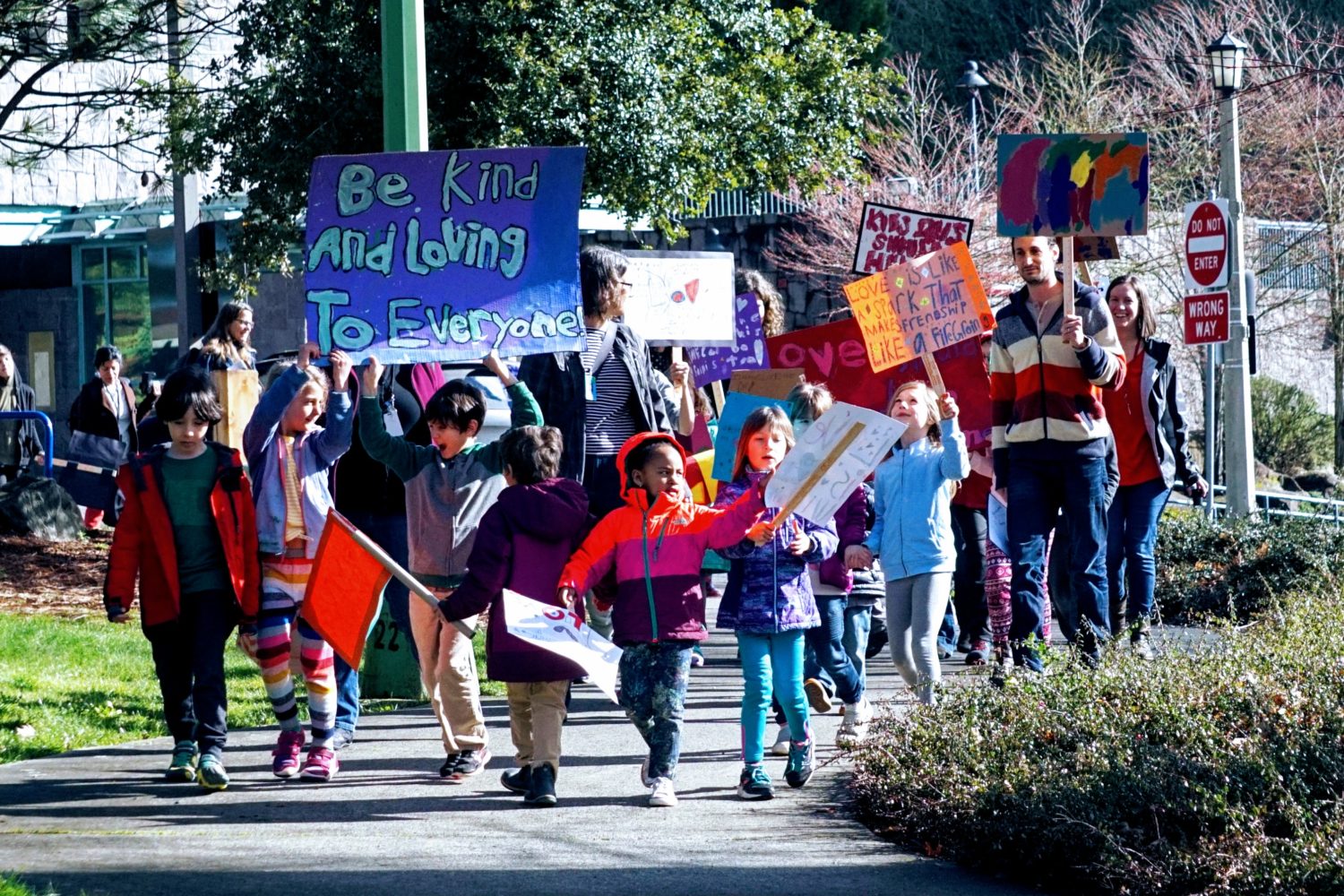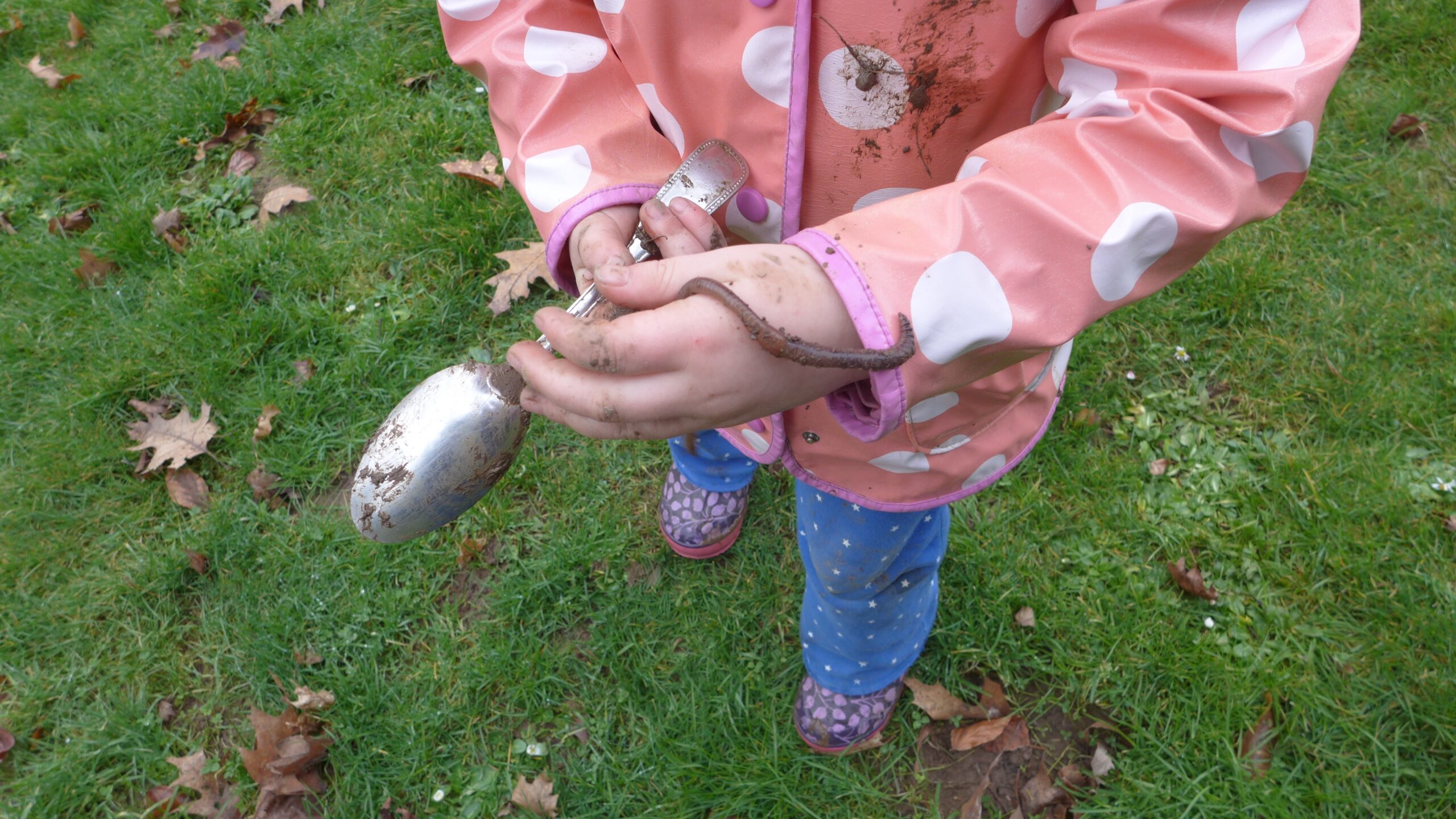The election, politics, and young children

In this election season, many of us are energized to deepen both our political advocacy and our pedagogy.
I believe that we all need to be highly politically involved right now, whether that involvement is inspired by our commitment to children’s present and their future, or our responsibility as Americans, or our understanding that Black Lives Matter. We need to be politically involved because we know that at the border families are being torn apart, that nursing mothers and their infants are being separated, that children and adults are being caged, that women are enduring forced hysterectomies. Because we know that violent white supremacy is being emboldened. Because we are outraged by climate catastrophe and originalism and indoctrination education and the dismantlement of electoral systems.
Because of all that, we need to step up: to vote and encourage our families and friends and neighbors to vote and to text and phone bank and send postcards and canvass and monitor polling stations and protest and prepare for what comes next.
That is what is demanded of each of us – that is our responsibility as adults in America today.
But I don’t think it is what’s called up on for young children.
When I think about the gifts of childhood – when I think about what it means to have a strong image of young children as intelligent and competent and creative, as people constantly making meaning of the world, I don’t think that’s the same as saying that I think they are well equipped to analyzing the Iran weapons treaty or the Commerce Clause or the past and future of the Voting Rights Act. Young children’s lives are shaped by the wider politics – and we need to be guided by an understanding that these children have a right to participate in civic society in meaningful ways. We need to recognize that their imagination and courage holds the potential to inspire all.
To do that, we have to reflect on the extent to which all of our work with children has a political dimension.
Some people will tell you that working with young children shouldn’t be political – but we know that it always is. That was really clear to me the other day when I was talking with a teacher who was taking one of Opal School’s online professional development courses. She explained that, under Covid, her early childhood center has spent as much of the day outside as possible. And when they are outside, the children are constantly finding worms.

When they find the worms, they get to choose: They can lift the worms up and bring them over to the garden, sending them off to lives of bliss. Or, they can feed the worms to the chickens.
What a profound ethical quandary these very young children are faced with!
Let’s consider some of the many political dimensions of this landscape.
That the school offers the children the opportunity to make this choice? Political.
That the school offers the children only these two choices? Political.
That each child is free to make their own choice regarding the outcome for each worm? Political.
Whether these decisions are made privately or deliberated over publicly? Political.
If the decision was voted on with a majority holding sway? Or by consensus? Political.
For most children, entrance into early childhood programs is their first journey into a public space – a first time to encounter perspectives different than those of their families, to begin to develop their own voice and stance about these differences, to develop a vision of how their participation might be welcomed and experienced, to form their first relationship with authority outside the family. And our intentions for what we want of that experience are profoundly political.
I identify with a political mission in education that aligns with advancing democracy. I know that many of you have been thinking about how to defend – and extend – democracy. For me, that means shifting the way in which power functions in our communities. We can explore relationships of power with, to, and within – and work against oppressive systems of power.
In Healing the Heart of Democracy, Parker Palmer called on all of us to exercise humility and chutzpah.
He wrote,
By chutzpah I mean knowing that I have a voice that needs to be heard and the right to speak it. By humility I mean accepting the fact that my truth is always partial and may not be truth at all – so I need to listen with openness and respect, especially to “the other,” as much as I need to speak my own voice with clarity and conviction. Humility plus chutzpah equals the kinds of citizens a democracy needs. There is no reason, at least no good reason, why our number cannot be legion.
Of course, it takes more than two words to name the qualities we need today. Here are five interlocking habits of the heart – the first three related to humility, the last two to chutzpah. Such habits [are] deeply ingrained patterns of receiving, interpreting, and responding to experience that involve our intellects, emotions, self-images, and concepts of meaning and purpose. These five habits, taken together, are crucial to sustaining a democracy.
We must understand that we are all in this together….
We must develop an appreciation of the value of “otherness”….
We must cultivate the ability to hold tension in life-giving ways….
We must generate a sense of personal voice and agency….
We must strengthen our capacity to create community. (pp 43-45)
We will be called on to exercise these habits in our work with children – and with our colleagues – and in our broader civic communities over the coming weeks. Let’s look to each other to find courage and imagination in doing that.
